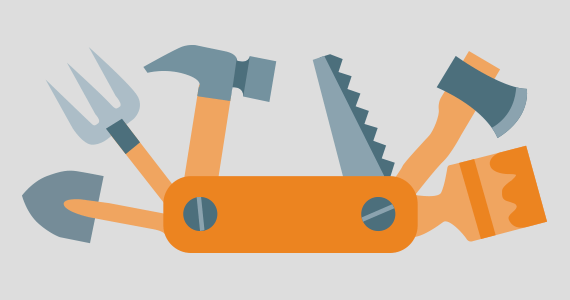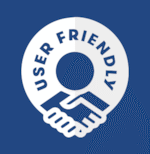
In an age run on digital, business owners need their products and services to exist on the web. Content management systems (CMS or WCMS) are the unanimous platform tool used to create and manage a web presence for clients.
There’s a lot of work that goes into a website. It’s truly not a one-man job. And if you insist on it being a one-man job, be prepared for managing it to take awhile. It’s not practical to expect a single individual (ideally, a developer) to be versed in design, writing, coding, account managing, etc., and to be able to execute all of these skills at once on a platform.
If you have an easy-to-use CMS, everyone you employ or contract to work on the site can do so with ease. The developer you hire wouldn’t have to spend their time performing menial copy and graphic updates. Instead, a writer can do copy updates and a designer can upload graphics directly, and so on. The point here is: A good content management system enables all of your people. Here’s a list of necessary CMS features you don’t want to overlook when finding a platform easy to use by everyone.
 User-Friendly Interface & Functionality
User-Friendly Interface & FunctionalityLet’s think operationally first. Like mentioned before, not everyone can be a developer, and your content management system should reflect a user experience for people who understand website management, but aren’t expected to create code from scratch or intricately manipulate it. Here’s a list of actions that should be obvious and seamless for any user working on a site:
If something’s wrong with a file or format, your CMS software should have built-in notifications to recognize errors and help problem solve.
 Flexibility and Scalability
Flexibility and ScalabilityYou want your CMS to be flexible. Site builders like Squarespace and Weebly limit the ability to manipulate the style and functionality of a site. For example, you might not be able to manipulate the navigation bar, or anyone working within it won’t be able to move a headline or photo slightly to the right as you wish.&
Flexibility comes with a professional CMS in which your developer can manipulate code as necessary. That way, there’s no stylistic restriction when creating and maintaining your website.
In reference to scalability, as a business grows, you want your site and marketing to grow with it. That could mean higher traffic to your site and more features added on later. Your CMS should be able to handle projections like these without compromising your site’s performance.
 Security
SecurityIt’s obvious to go with a content management system that has hack-proof security, but to ensure that type of security in some popular systems outsourced help or add-ons are required. Seems a bit ironic to have to go outside of the system to ensure your security within, right?
You’ll also want to consider the site permissions you assign to each role inside your business. For example, a good CMS will allow an administrator (you) to give permission for a designer to update graphics automatically—no questions asked—whereas you could have others do the same, but go through a publishing approval process before actually publishing.
 Digital Media Assets and Management
Digital Media Assets and ManagementPhotos, videos, digital ads — even site templates. You’ll have these design files created in house or need to seek them out elsewhere. A great CMS will have an easily searchable database of your own digital assets or even offer template layouts you could use if you can’t furnish those creative assets in-house.
 SEO and Site Visibility
SEO and Site VisibilityMost marketers will judge a website's effectiveness, at least partially, on whether it’s visible to the target audience, e.g., “Is my general contracting website showing up to users in Arizona during the spring?”A strong content management system will provide tools (for non technical users) to optimize a website for search, as well as other tools to easily promote social and content marketing.
Even the slightest knowledge of how users navigate and interact with your site will help you plan and project ways it could improve. Metrics provided by your CMS are crucial for improving digital and content strategies; metrics can show what marketing is working for your audience and what you need to pivot or cut.
This list of features has easily become the standard for effective content management systems. If you’re looking around for the best CMS for your small agency or business, make sure it’s checking these boxes and then some.
Are you interested in a CMS with great features and functionality for the everyman? Marketpath CMS is a comprehensive CMS that allows complete control over layout and rendering, while providing non-technical editors an easy-to-use and full-featured tool set for content marketing.